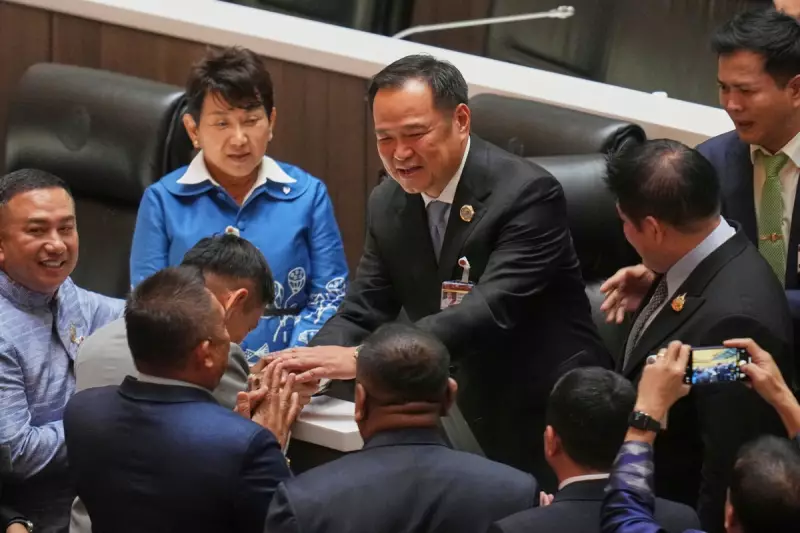
Thailand's political landscape witnessed a significant moment of stability as Deputy Prime Minister Anutin Charnvirakul successfully navigated a parliamentary confidence vote, securing his position in the cabinet. The outcome, which saw 276 votes in favour against 191 rejections, reinforces the current coalition government's fragile unity.
The vote emerged as a critical test for Prime Minister Srettha Thavisin's administration, which has been grappling with internal pressures and opposition challenges. Charnvirakul, who also serves as Interior Minister and leads the Bhumjaithai Party, represents a crucial linchpin in the ruling Pheu Thai-led coalition.
Political Implications and Coalition Dynamics
This survival of the cabinet reshuffle vote signals temporary relief for the government, but simultaneously highlights the delicate balance of power within the coalition. Political analysts suggest that while the government maintains its majority, the substantial number of opposing votes indicates persistent dissent and potential vulnerabilities.
Charnvirakul's Bhumjaithai Party, known for its instrumental role in forming the current coalition, continues to wield significant influence within Thai politics. His retention of the interior portfolio ensures continuity in several key government initiatives, including public health and infrastructure projects.
Broader Context of Thai Politics
The confidence vote occurs against a backdrop of ongoing political manoeuvring in Thailand, where coalition governments often face challenges in maintaining parliamentary support. The current administration, which came to power following extended negotiations between multiple parties, represents a delicate compromise between various political factions.
Observers note that while this vote provides temporary stability, the underlying tensions within the coalition suggest that further political tests may emerge in the coming months. The government's ability to implement its policy agenda while managing coalition dynamics remains a critical challenge.






